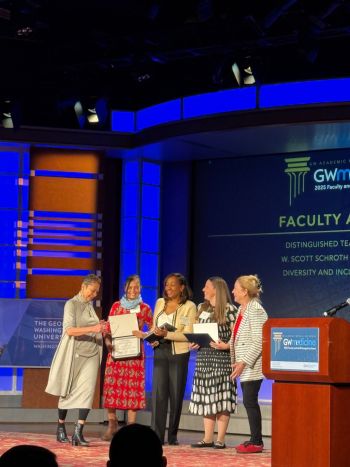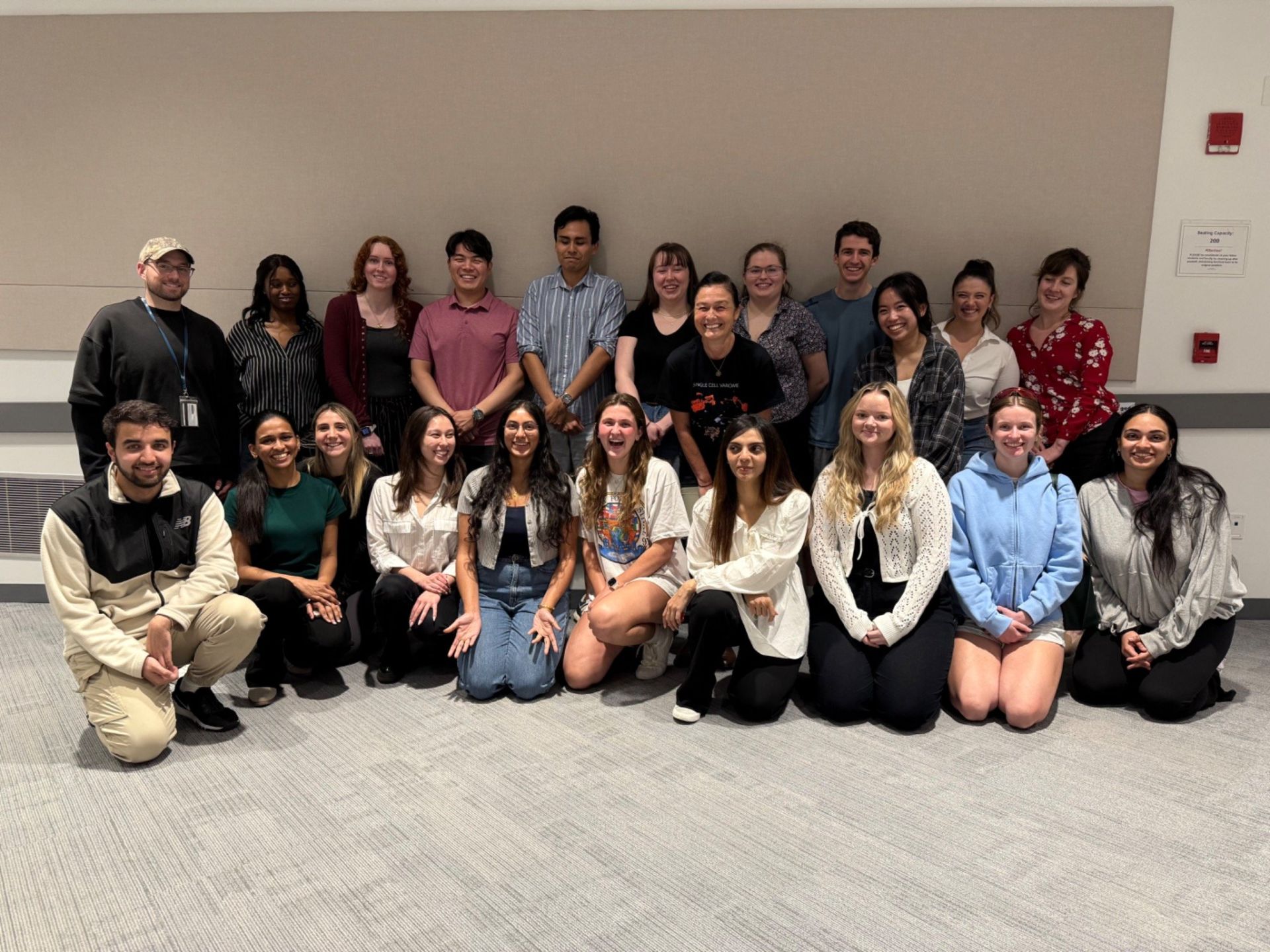Teaching Recognition:
Dr. Anelia Horvath received the Distinguished Teacher Award at GWU, honoring her leadership in genomics and bioinformatics education.

BIOC6246, GW:
Advanced Genomics Data Analysis: From Bulk to Single Cell Sequencing.
Decode the genome, one cell at a time.
This advanced, hands-on course provides comprehensive training in the analysis of high-throughput genomic data, spanning bulk sequencing and single-cell technologies. Students will learn to design and execute end-to-end analytical workflows-- from raw data pre-processing to biological interpretation-- through a combination of interactive tutorials, real-world datasets, and applied projects.
Dr. Anelia Horvath received the Distinguished Teacher Award at GWU, honoring her leadership in genomics and bioinformatics education.
The course emphasizes practical skill-building in a command-line Linux environment, statistical computing in R, and scalable workflows on high-performance computing (HPC) systems. Students will work directly with large, complex datasets to explore gene expression, cell states, variant detection, and data integration—anchored in research applications such as cancer genomics. The course culminates in a capstone project, where students apply their skills to analyze real-world datasets and present biologically meaningful insights. AI in Cancer Genomics: Graduate Course

Why Take This Course ?
- Analyze real datasets from bulk and single-cell experiments
- Interpret biological patterns across cell types, tissues, and disease states
- Learn reproducible, scalable approaches for research, clinical, or biotech settings.
- Build practical fluency in genomic data analysis using R, Linux, and HPC workflows
- Complete a capstone project applying genomic analysis to cancer research.
In Development:
AI in Cancer Genomics: Graduate Course (Planned Offering: GWU, GU, UMD)
Training the next generation of scientists at the intersection of AI, single-cell biology, and cancer research.
Jointly developed by George Washington University, Georgetown University, and the University of Maryland, this forthcoming graduate course responds to an urgent national need for interdisciplinary training in AI and cancer genomics. Students will gain the theorotical foundation and practical experience to apply machine learning and deep learning models to real single-cell datasets, focusing on mutation impact, treatment response, and tumor heterogeneity.
The curriculum includes core lectures, guided computational labs, integrated ethics sessions, and a multi-week capstone project. Students will work with real data from public repositories and faculty collaborations. Training emphasizes Python, R and key ML frameworks (e.g., scikit-learn, TensorFlow) in cancer-focused contexts.
Course Highlights:
- Learn AI models for mutation detection, cell type classification, and treatment response prediction.
- Integrate scRNA-seq, exome and spatial omics data.
- Explore AI architectures (CNNs, RNNs, ensemble models) in cancer applications.
- Address ethical and societal issues in AI-driven genomics
- Participate in a capstone project with publication potential.
Cross-Institutional Access: This course will be available to students from partner institutions across the DC area, including Howard, American and Catholic Universities. Resources, labs and code will be shared openly to support national dissemination.
Capstone Topics May Include:
- Inferring treatment response using gene, isoform and variant features.
- Predicting mutation origin(somatic vs. germline vs. RNA-editing).
- Exploring the functional impact of mutations using AI on multi-omic data.
This course will equip students with high-impact, translational skills and prepare them for leadership in biomedical data science and precision oncology.